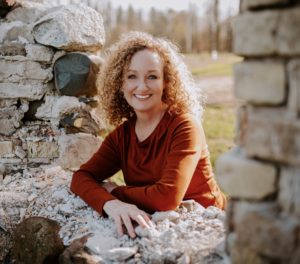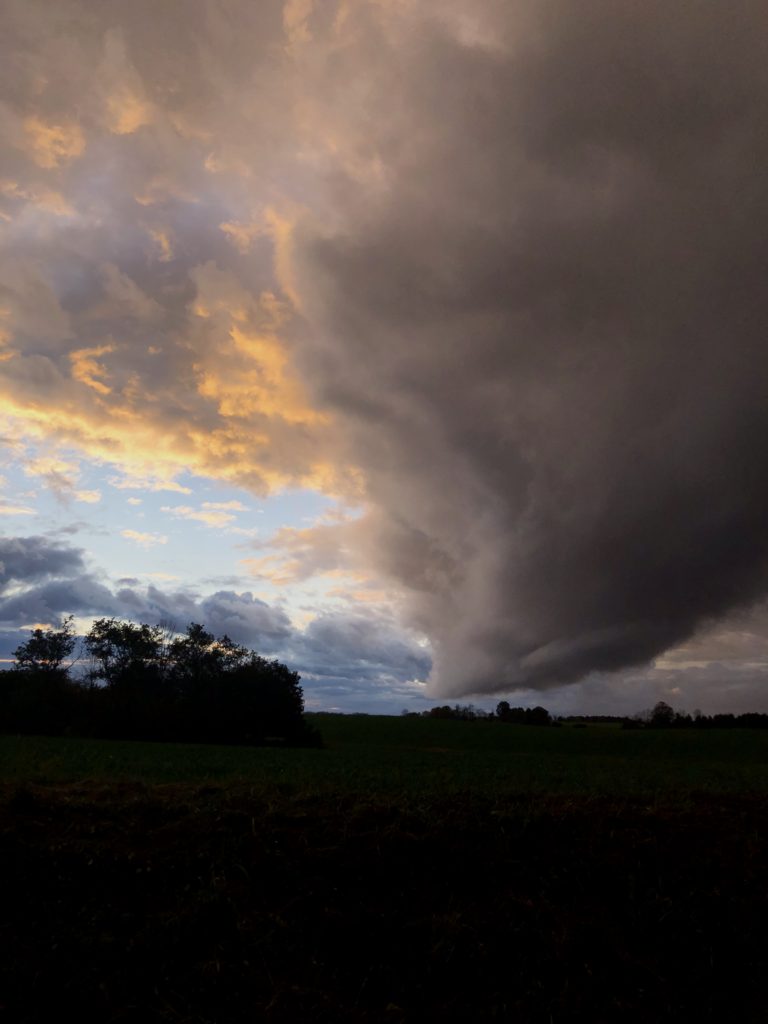Right in the middle of our country road, a couple hundred yards from our farm’s gravel drive, past ravine with creek winding and pines soaring, a woman collapses into my arms sobbing, screaming, pulling her hair side-ways hard.
HE’S DEAD! HE’S DEAD! I KNOW HE’S DEAD!
I didn’t know her. She looked 30-something, physically fit, blond hair flying wild, piercing blue eyes blurred with steaming tears. I didn’t know the other three who were biking with her that near-perfect-weather morning, cicadas and crickets singing the finale of summer here in southeast Wisconsin—two couples out celebrating a milestone.
Saturday.
August 15, 2020.
8:40 AM.
Time sometimes slows with shock.
Rewind 60 seconds . . .
I turn left out of our drive, heading to the next farm north. I’m late meeting Nancy, her farm adjacent to ours. We’re going for our daily morning walk. Baker, my Yorkshire terrier, has his head trust out the backseat window, his hair blown straight back by the wind.
Only 35 acres away. Sounds like more than it is. Especially in a life or death situation. A 60-second drive.
Windows down, left elbow out, right hand on the wheel, I see a vintage, lapis blue Ford truck facing north on the east side of the road. I glance to my left and see a mangled bike facing south beside the ditch.
No rider.
Next, I see a woman, smack-dab in the middle of the intersection where I’m to turn. The intersection I’ve turned a thousand times or more. The intersection of pastoral tranquility with rotating seasons of winter wheat, soybeans and corn on one corner and hayfields with horses across the way.
I pull my white Highlander to the side of the road, shift into park, and jump out, forgetting to turn off the engine. I run to the woman in the intersection.
What prompted me? Instinct? Intuition? I don’t know really. I just know something horrible happened and I wanted to help.
CAN I help? I don’t know. I’m nervous, not wanting to intrude on trauma.
I see a man up ahead a bit, also in his thirties, over six-feet tall, built like a football linebacker, wearing a neon green shirt and black jersey shorts. He’s holding a brown chihuahua close to his chest like a child would hold a favorite stuffed animal for comfort when scared. I’m fairly certain he’s the owner of the truck.
I look back and see a woman and man kneeling on the flatbed of the truck. The man’s arms are pushing—up and down, up-and-down, compressing. A woman kneels beside him counting the cues for breath of life blown into lungs of the unconscious. Or dead. No one knows yet.
“Did anyone call 911 yet?” I ask the by-standers.
“Yes. They’re on their way,” the man in neon green responds. His face is pale, drawn.
The woman in the intersection is pacing like a wounded tiger—screaming, growling, blasting “F” bombs.
Oh my God! Oh my God! He’s going to die! He’s going to die! Oh my God!
She starts pulling her hair hard like she’s trying to rip it out of her scalp. I stay beside her—walking with her one moment, putting my arm around her another moment, praying silently at first, and then out loud.
Once more, she comes to me and falls into my arms, knees buckling. I bear her weight. She goes down to the ground, pounding black asphalt with fists. Her guttural screams sear me like a red-hot branding iron. I feel what could only be a fraction of her pain. I want all to be well. But it isn’t. And it might not be. We just don’t know. I stay beside her, hand on the shoulder of a sobbing woman in shock and grief like I’ve never seen. I start praying out loud.
Jesus! Jesus! Help us, Jesus!
Time is in slow-motion.
Where’s the ambulance? Where are the EMTs? What’s taking so long?
I’m fearfully impatient.
My arm around the woman, I ask her name.
“Andrea,” she says.
Her desperate eyes connect with mine. Then she tells me, sobbing:
“It was our anniversary yesterday. August 14. We’re taking a bike ride to celebrate. Oh God! Oh GOD! Nick’s going to die! Our kids! Oh my God! Our kids! How am I going to tell our kids?”
Todd and I, Andrea and Nick—both couples with the same anniversary. Todd and I just returned from a camping/hiking/biking celebration of our own along the Mississippi River the night before.
Now this. The morning after. On the same road my family has biked too many times to tell. Our youngest, also named Nick.
I look back at the truck and see Andrea’s bike-riding friend, the man continuing to thrust his arms up and down, continuing the CPR. Nick, Andrea’s love, must be in there, I think.
Ever so gently, I place my hand on Andrea’s shoulder, not knowing what else to do but pray and be present in her suffering.
Maybe she would scream at me to leave her alone.
I was tentative.
I wonder if I should even be here in this intersection of life and possible death.
But what would I want, I think?
How would I want my “neighbor” to love me as Jesus says to love our “neighbors”?
I would want a sensitive presence—someone watching and waiting for cues. A willingness to console me without lies or spiritual platitudes. And pray. Whether I was a Christian or not. I’d want someone to pray. For in these kinds of moments where we know we have absolutely no control over life and death, we seem most open to call on God–even if we’ve said we don’t believe in that same God. And I’d want a willingness in the other to back off and go away. Sometimes we most need to suffer in solitude. Bottom line, I’d want the good-hearted sensitive in my suffering—focusing on my need instead of their own.
In this moment of emotional torture, Andrea doesn’t turn me away.
So I stay.
I follow her lead.
She runs away from me sometimes and then runs back to me every time. Sometimes I follow her, stay with her. Other times, I watch her run, stomp, scream. Waiting and praying for what to do next. Andrea never turns me away totally. Never tells me to stop altogether. I pray, fumbling for words. Hoping only to help. She keeps allowing me to keep pace with her, touch her arm, hold her whole body collapsing, praying out loud over her—for her, for Nick, for all trying to save Nick’s life.
And then the emergency vehicles arrive. I know one of the EMTs. We live in a small country community. Andrea’s friend jumps off the flatbed of the truck after the EMT takes over the CPR. He starts walking toward Andrea and me. Deadpan expression. Andrea and I both notice his face. She starts screaming louder, as if that were possible.
“Is he dead?”
Her friend comes close. Andrea repeats her screaming question, even louder.
“IS HE DEAD? TELL ME!”
Her friend says nothing.
Nothing.
Nothing.
Andrea runs away from her friend. I think she knows. I think I know.
I look back at the truck. The female EMT I know walks back toward us. I step away from Andrea. I ask her, “Is he alive?”
She tells me, “He’s not breathing. He has no pulse.”
The EMT approaches Andrea.
“No! No! NO! DON’T TALK TO ME! I CAN’T DO THIS!”
The EMT is gentle and kind. And then she returns to the truck.
A few minutes later, Andrea starts walking toward the truck. I’m right beside her. The woman EMT I know raises her hand. I know what it means.
Don’t let her come closer.
I keep Andrea with me.
“It’s best we stay back and let the EMT do his job.”
Andrea stays with me. We are both fixated on the EMT doing CPR. And then . . .
The EMT stands up and climbs down from the flatbed. He starts walking toward Andrea and me.
OH MY GOD!
Andrea screams it again and again and again!
We both know.
Nick’s dead. He’s gone.
As the EMT comes close, Andrea runs away.
DON’T SAY IT!
DON’T SAY IT!
I CAN’T DO THIS!
I CAN’T DO THIS!
Andrea knows.
The EMT never had to say it.
Nick was gone.
Gone.
One moment celebrating, the next moment grieving.
~ ~ ~
Life gives us no guarantees. We all have hopes and plans. We all have loves and losses. We all don’t know what the next moment might hold. So what’s the lesson in the loss?
For me, the death of Nick was not my first tragedy—my own, other’s I love, other’s I don’t even know.
Anton Chekhov, one of my favorite authors—a Russian and a Christian—says:
“Every happy man should have some one with a little hammer at his door to knock and remind him that there are unhappy people, and that, however happy he may be, life will sooner or later show its claws, and some misfortune will befall him — illness, poverty, loss, and then no one will see or hear him, just as he now neither sees nor hears others. But there is no man with a hammer, and the happy go on living, just a little fluttered with the petty cares of every day, like an aspen-tree in the wind — and everything is all right.”
(Selected Stories of Anton Chekhov)
We have hammers on our farm. We use them for mending broken fences and porches. But hammers can break and hurt as well. Truth is, we all get hit hard by life, sooner or later, often suddenly and unexpectedly.
Questions remain.
Will we be there with others in their pain? Will we push past our own to touch another’s? Will we risk being messy? Not knowing what to do or say but trusting our great God who promises to lead us through the fog rather than default to paralysis?
I came home a couple hours after and fell to the floor sobbing, pounding the oak floors in my kitchen. The trauma. The grief. The hoping but not knowing that I’d done something positive or if I added to her trauma. The trying to trust in the goodness of God in the midst of tragedy is maybe the hardest trusting of all.
I spent that whole day crying and praying—the day after Todd’s and my 27th anniversary where I got to come back to our farm, a couple hundred yards south of that life and death intersection, and hug my flesh-and-blood husband harder than I think ever before.
The next morning, I rose calmer and more thankful for life, for my husband. And I also kept thinking about and praying for Andrea and her kids. My family’s intact. Her family has a gaping, horrible hole.
I let a week go by. And then I sent a message to Andrea on FB Messenger, telling her who I was, asking if I could help her in any way.
She responded immediately.
“Hello Heather. Thank you for everything you did that day and thank you for your kind words. I am just trying to take it one step at a time. Back to work a bit and doing a lot of mountain biking trying to just feel him out there.”
I know Grief Mountain.
Maybe you do too.
Shall we keep pushing those pedals—the ups and the downs—no matter how hard, no matter how painful—to be there for one another, comforting and encouraging—bringing the comfort of God to the needy, however that might look here on earth?
Shall we just show up for one another?
Shall we remember, in the grand scheme of things, that grace and truth overcomes all?
No matter how inadequate we might feel?
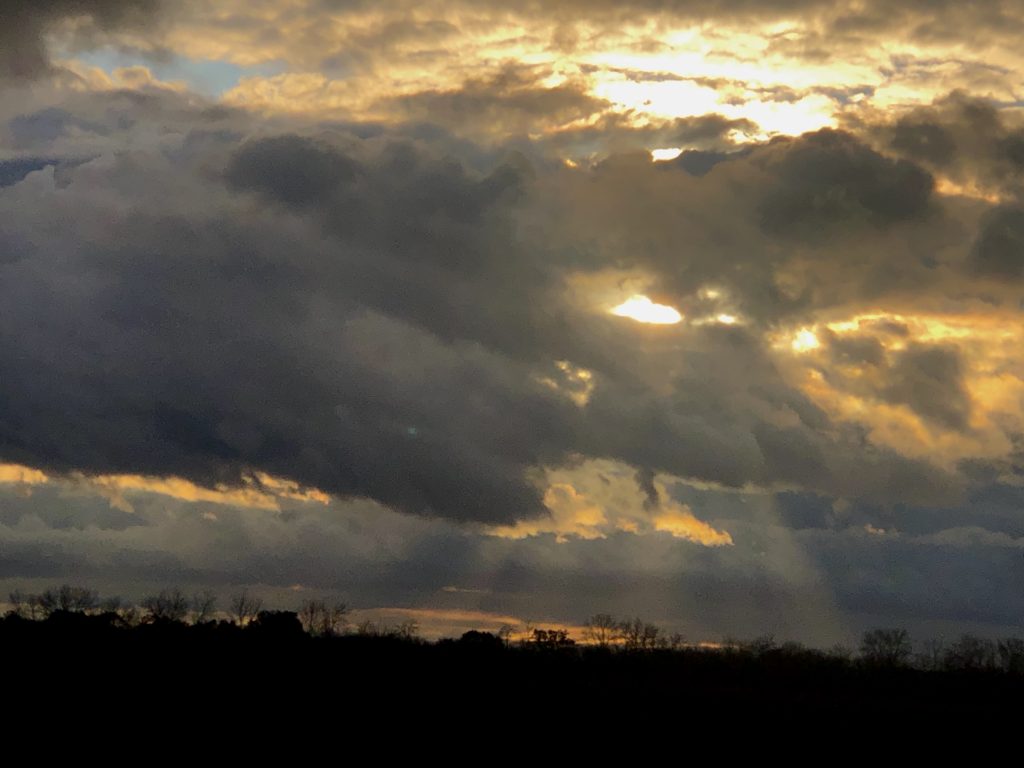
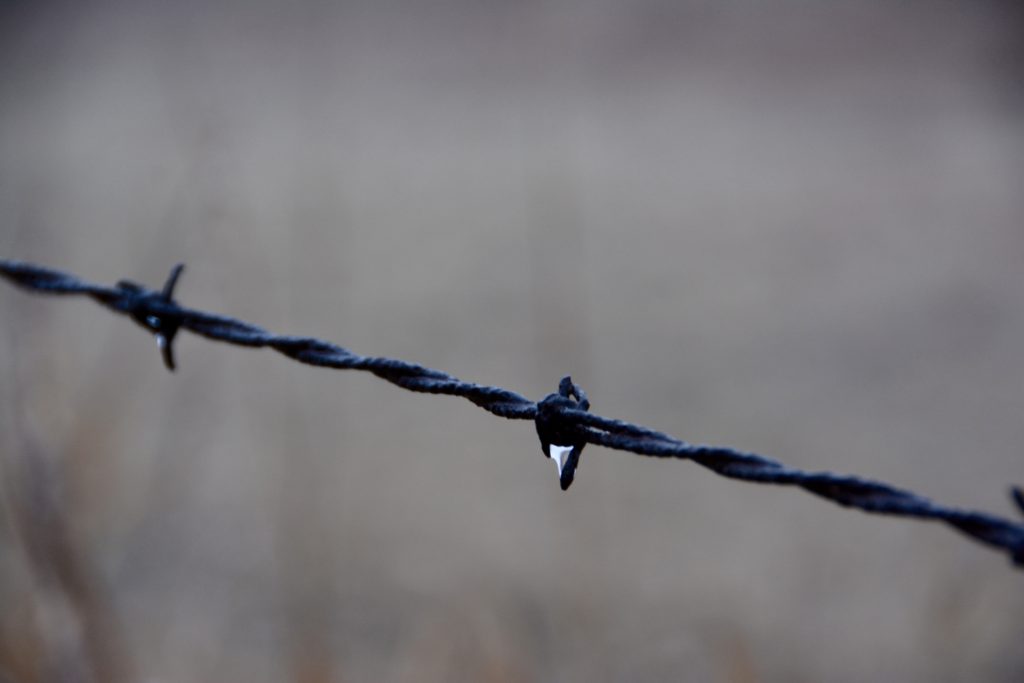
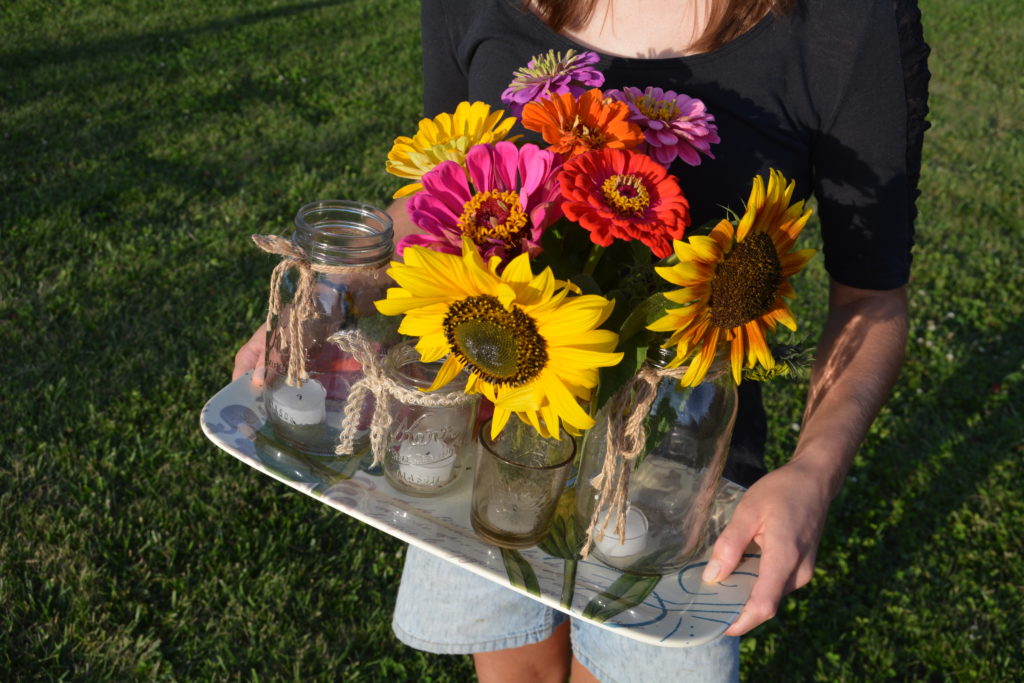
Rejoice with those who rejoice, weep with those who weep. Romans 12:15
A friend loves at all times. Proverbs 1717

